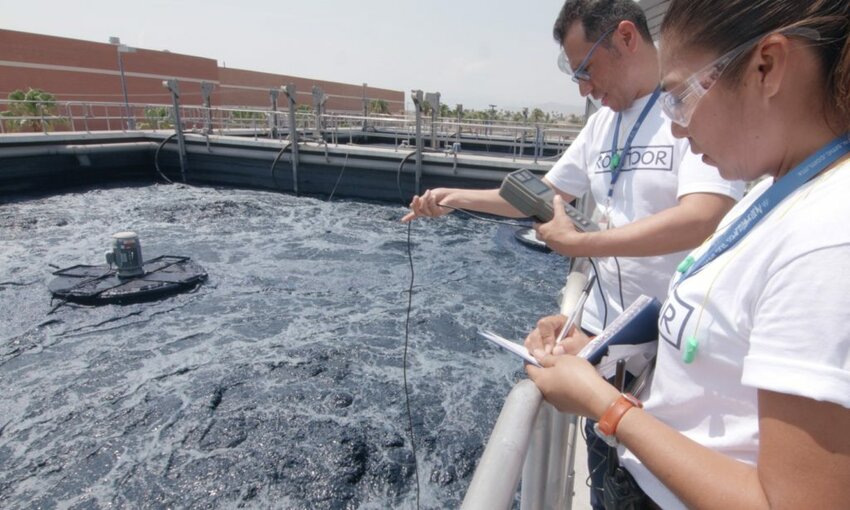 (Photo Credit: Wrangler)
(Photo Credit: Wrangler)Wrangler set a new global sustainability goal for 2030 this week: a 50% reduction in water usage. The jeanswear and casual apparel brand says that this expanded scope of water responsibility extends across their supply chain.
In April, Wrangler reported surpassing their previously set 2020 goal. Since 2008, the company says it has saved more than 7 billion liters of water from the product finishing phase of its denim products. Now the brand wants to reduce water usage further.
“The updated goal targets the fiber production, fabric construction, and product finishing phases of the denim supply chain, which encompass more than 95% of the total water used throughout the production of a pair of jeans,” Wrangler said on Thursday.
In order to reach their new water goal, Wrangler is working with the nonprofit Transformers Foundation on a comprehensive water balance study analyzing the denim industry’s water consumption by production phase. Launched earlier this year, the Transformers Foundation seeks to be a catalyst for the denim supply chain, improving sustainability.
“This study will address the inconsistency of water usage data in the denim supply chain globally and aims to provide reliable industry average benchmarks that will be offered publicly and usable by all members of the industry,” the denim brand said. “Wrangler will use the water intensity baseline generated from the study to calculate the water savings made from new technological innovations in the pursuit of the new water goal.”
Wrangler added that they are aligning their water reduction goal with two existing denim production process efforts. One focuses on cotton production. In 2017, the company launched an alliance made up of agriculture industry experts, farmers, and nonprofit partners called the Wrangler Science and Conservation Program to build a resilient and regenerative cotton supply.
By April 2019, five family farms had joined the program, and produced sustainably grown, traceable cotton for Wrangler’s Rooted Collection. Participating farmers utilize science-backed methods that support crop resilience, improve yield, reduce water and energy inputs, fight erosion, and reduce greenhouse gas emissions, the brand said.
Another effort that aligns with the water-saving goal is the company’s trademarked Indigood foam-dye technology, which replaces the traditional water vats and chemical baths required in conventional indigo dyeing, eliminating 100% of the water. The trademarked tech also cuts energy use and waste by more than 60% compared to conventional dyeing, Wrangler said. In June 2019, the brand introduced their first denim apparel dyed with the foam.